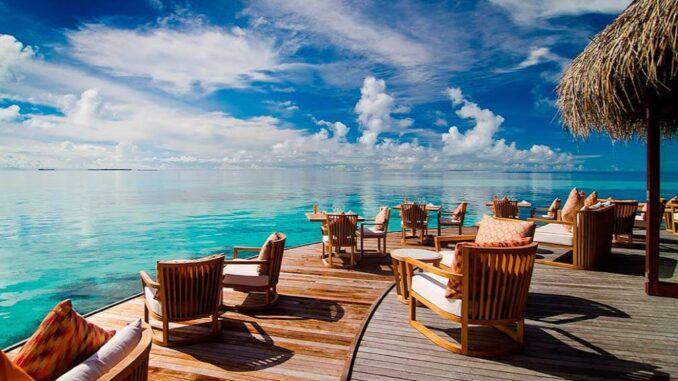
With their pristine oceans, fine sand beaches, and balmy weather, the Maldives are a utopia on Earth. Travelers from all over the world frequent this well-liked location to decompress, appreciate the natural beauty of the islands, and unwind. Even though traveling to the Maldives is safe, it’s crucial to be mindful of the hazards related to food and water safety. We’ll talk about the things you should know in this article to stay healthy in the Maldives.
Water Security :
Water safety is one of the most crucial factors to take into account when visiting the Maldives. Although the tiny island nation of the Maldives is surrounded by pristine waters, the water that comes out of the faucets might not be suitable for drinking.
Despite having beautiful waterways all around it, the tiny island nation of the Maldives may not have clean enough tap water.
Water from the taps on the tiny island nation of the Maldives may not be suitable for drinking, even though the region is surrounded by crystal-clear oceans.
Diving and Swimming :
In the Maldives, swimming and diving are common sports, but it’s crucial to understand the dangers connected to water safety. You should only swim in locations that are designated for that purpose; swimming in areas with strong currents or where there is marine life is not advised. You should make sure that the diving equipment is kept in good working order and that diving is only done under the guidance of a professional instructor.
dietary safety
When visiting the Maldives, food safety is also another crucial factor to take into account. Even though the Maldives is well-known for its seafood and unique cooking, eating improperly prepared food carries significant dangers.
Food Preparation :
It’s crucial to make sure the food you eat in the Maldives is cooked to perfection. It is advised that you only eat food that has been properly prepared and served hot. Avoid eating raw or undercooked seafood, and be sure to properly wash fruits and vegetables before consuming them.
Water- and Food-borne Illnesses :
Infections from food and water can happen in the Maldives, especially if appropriate safety measures are not followed. Food- and water-borne diseases can include fever, diarrhea, vomiting, and nausea. It’s critical to eat and drink only clean, safe food and water to prevent serious infections.
Points in a bullet:
In the Maldives, stick to bottled water only.
Before drinking the water, make sure the bottle’s seal is intact.
Go only where it’s allowed to swim, staying away from places with strong currents or marine life
Make sure the diving gear is kept in good working order and only dive with an instructor who has received certification.
Eat only food that has been properly prepared and served hot.
Steer clear of undercooked or raw fish.
Thoroughly wash fruits and vegetables before eating them.
FAQs:
Is swimming safe in the Maldives?
A. The Maldives offer safe swimming conditions, but it’s vital to understand the risks involved.
Is it safe for me to drink Maldivian tap water?
A. Drinking tap water in the Maldives is not advised. It’s crucial to stick to drinking bottled water, which is easily obtained.
What signs and symptoms accompany water- and food-borne illnesses?
A foodborne or waterborne sickness may present with symptoms such as nausea, vomiting, diarrhea, and fever.
In summary:
The Maldives is a stunning location, but it’s crucial to take the right safety measures to keep yourself healthy while visiting. You can assist guarantee that your water and food are safe by adhering to these guidelines.

